Dealing with web design clients can be like being hit in the face 100 times a day.
Many clients have the expectation that because they've hired you, all their problems are going to be solved because you’re going to do all the work and they can just check out.
What they don't realise is that it's actually a collaboration.
That's why when we go back to them and ask them for content, ideas or feedback it becomes difficult. And if you go ahead without much of their input, it may result in them not liking what you’ve produced. So then you just end up constantly putting out fires.
But you can avoid having to out those fires with this simple framework that will help you manage your client’s expectations from the very beginning.
The Three Meeting Types
Once you've done the discovery session and signed the client, there are three types of meetings that you should be having with them:
Meeting #1: The Flight Planning Meeting
The first meeting is the planning meeting where you take a look at the big picture.
There are a couple of things to cover in this meeting:
1. Key dates:
The first thing you need to know is if there are any key dates in the calendar over the period of the project.
This is really important because I've seen this happen time and time again – you start building a website project for a client and six weeks later they tell you that there's a conference coming up in a week and they need a landing page to capture leads from the QR code they’ll be displaying on their banners.
So in this meeting, ask them if there are any of the following coming up:
- Industry events
- Company events
- Key milestones
You also need to check if they have a hard launch date that you need to work towards.
2. Objectives and priorities:
Next, you want to know what their business objectives and priorities are while you are working together.
There will be other things happening in their business that they won’t think are relevant to your work. So make sure you ask them:
- Are they launching anything new?
- Are they doing any joint venture partnerships?
- Are there any events, sales or campaigns coming up?
- Is there anything that could take them out of the project and keep them busy such as employing new staff or a work trip?
- Are they taking annual leave?
You want to spend a lot of time in this workshop (approximately 2-3 hours) making sure that you ask a lot of questions and you dive deep into what will be happening in their business, especially in the time that you will be working on the project.
Meeting #2: The Monthly Traffic Control
The aim of the monthly meeting is to break down the next four weeks. So you might like to roll the planning meeting into the first monthly meeting. But you typically run this meeting at the end of every month to plan the following month.
Here you want to go into even more detail and figure out what the priorities are for the next four weeks.
Make sure you ask “Why, What, Who, When, How”.
1. Why are we here?
You might like to start by sharing some wins from the previous month to show them what you have achieved. Then tell them what they did well, like getting the images to you on time.
Next, ask everyone what has been working well for them and what they would like to get out of this meeting.
Then just listen and make notes. Don't get into the details in the first five minutes of the meeting. Just get into why are we all here and what's the purpose of this meeting.
2. What are the priorities?
Are there any changes in the priorities or the objectives that we need to be aware of?
3. Who is going to do what by when?
Assign tasks and dates to everyone to make sure things get done on time. It’s a good idea to use a project management tool like ClickUp or Asana to make the collaboration easier.
4. How will we get there?
Talk about how we're going to continue to communicate and how we're going to manage this workload.
Make sure you have this documented by the end of the meeting and then send a recap to everyone who was there.
Meeting #3: The Weekly WIP
You also want to be running a weekly work in progress (WIP) meeting on a Monday or Friday.
The purpose of this meeting is to run through:
- What we did last week
- What we're doing this week
- Where we are stuck
- What we need from you
Why These Meetings are Important
When I ran my own agency, we had a failure metric that if a client contacts us to ask us where things are at – we have failed.
When you lock in these meetings at the beginning of the project with the client, they know they don’t need to chase you up for anything. They don’t worry that you could have taken the project in the wrong direction or that you have forgotten them entirely.
It also frees up your time from answering questions and calls during the week and getting distracted from the task at hand. Just make sure that you have communicated this clearly in the onboarding phase – that any questions will be dealt with at the weekly WIP meeting and you will be mostly unavailable for the rest of the week.
Onboarding is Key
A good onboarding process and proactive communication will keep your client's expectations in check.
When you start working with a client, just make sure you get those meetings locked in their calendar and share the agenda for each of those meetings with your client so that they turn up prepared.
PS. Did you know that we have onboarding SOPs? In fact, we have swipe and deploy templates for many areas of your business. If you’re interested in joining the Mavericks Club to get access to these SOPs (as well as amazing coaching and community) then click here and set up a call with one of our awesome team members.






